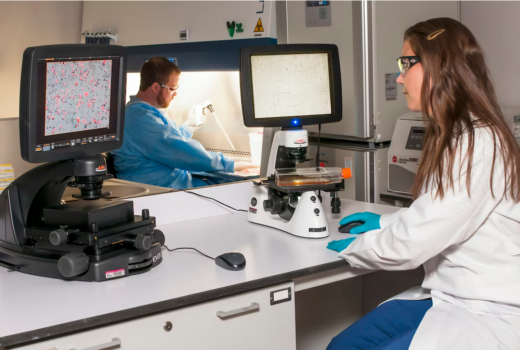EU gaat stamceltherapie toetsen
The legislation passed on 30 October sets out the technical details on regulating so called “advanced therapies” – gene therapy, adult stem cell therapy and tissue engineering – at the EU level. According to the new rules, advanced therapies and medicines involved in them will be subject to a scientific safety evaluation carried out at EU level by a special committee at the London-based European Medicines Agency.
Stem cell therapy – which experts believe could in the future be crucial for the treatment of blindness, spinal cord injury, as well as Alzheimer’s and Parkinson’s – is the most controversial as it can involve cells being extracted from human embryos. At the moment, there are no medicines based on embryonic stem cells available in the European markets, as none have been developed yet.
The practice is currently legal only in a few countries, such as the UK, and the new rules uphold the right of individual member states to ban both research and sales of medicines developed from embryonic cells from human beings. The approval by member states was preceded by a passionate debate at the European Parliament where some conservative deputies pushed for exclusion of ethically-sensitive medicines from the bill’s scope.
But in a vote in late April, the EU’s legislature adopted the proposal as favoured by the European Commission and advocates of modern medical treatments, while clearly stating it is up to individual national capitals to allow them or not on their territory. A similar debate was held last year when member states clashed on whether the EU should fund ethically sensitive research on embryonic cells, with the final compromise not allowing scientists to use EU money to extract stem cells from human embryos, although they will be able to work on new embryonic cells from other sources.
[bron: EUobserver]
Meest Gelezen
Vrouwen houden universiteit draaiende, maar krijgen daarvoor geen waardering
Hbo-docent wil wel rolmodel zijn, maar niet eigen moreel kompas opdringen
Wederom intimidatie van journalisten door universiteit, nu in Delft
‘Waarom het nu niet lukt om medezeggenschap in hbo te versterken’
‘Sluijsmans et al. slaan de plank volledig mis’


